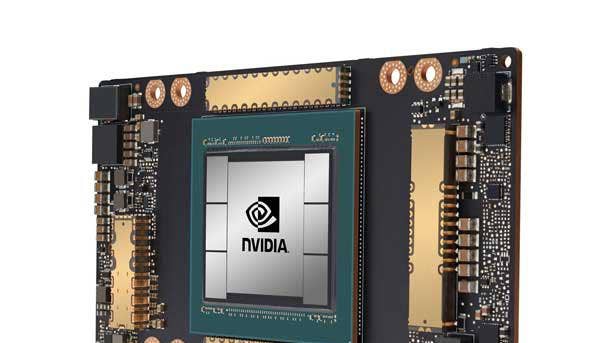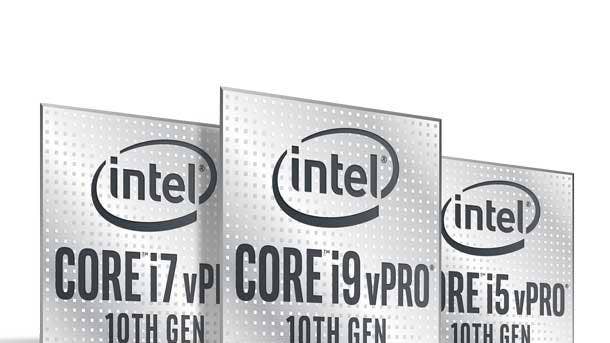5 Companies That Came To Win This Week
For the week ending May 15, CRN takes a look at the companies that brought their 'A' game to the channel.

The Week Ending May 15
Topping this week’s Came to Win list is Microsoft for an acquisition that will help make the software giant a major player in 5G cloud applications.
Also making the list are Nvidia for the debut of its next-generation 7nm GPU processors, VMware for a savvy acquisition in the Kubernetes security realm, IoT startup Ordr for launching a global partner program, and Intel for its plans to develop carbon-neutral PCs.

Microsoft Buying Metaswitch, Prepping For A Major 5G Play
Microsoft struck a deal this week to acquire U.K.-based Metaswitch Networks, the company’s second acquisition toward building out the Azure cloud as an end-to-end platform for 5G networks.
Acquiring Metaswitch and its software, which virtualizes core 5G network functions, will help Microsoft extend Azure’s networking layer beyond the data center to devices. That’s expected to spur development of applications that run on 5G networks. Metaswitch also has a catalog of 5G voice, data and contact center applications.
The Metaswitch acquisition follows a deal Microsoft reached in March to buy Affirmed Networks, a developer of wireless network virtualization software for telecommunications companies deploying 5G networks.

Nvidia Unveils 7nm Ampere A100 GPU To Unify System Training, Inference
Chipmaker Nvidia demonstrated its technological prowess this week when it debuted the A100 GPU, the company’s newest data center processor that Nvidia said will revolutionize artificial intelligence by unifying system training and inference into one architecture.
The A100 is based on Nvidia’s new 7-nanometer Ampere GPU architecture that can outperform the company’s V100 and T4 products several times over.
The A100 can partition into as many as seven distinct GPU inferences or work as one giant GPU. The processor contains more than 54 billion transistors on an 826 mm2 die and uses Nvidia’s third-generation Tensor Cores.

VMware To Acquire Kubernetes Security Startup Octarine
Virtualization technology giant VMware made a big move to boost its security offerings this week when it struck a deal to buy Octarine, a Kubernetes security technology startup.
VMware plans to embed Octarine within its recently acquired Carbon Black Cloud security system to better secure containerized applications running in Kubernetes.
With the Octarine technology VMware users will have full visibility into cloud-native environments to better identify and reduce the risk posed by vulnerabilities and attacks. That will simplify DevSecOps and make cloud-native environments intrinsically secure all the way from development through runtime.

IoT Security Startup Ordr Launches Global Partner Program
IoT security startup Ordr is making good on its promise to be a channel-first company. This week the company launched a comprehensive global partner program that aims to give solution providers multiple ways to make money in securing and controlling connected devices on corporate IT networks.
Ordr, which was founded by former Aruba Networks executives and exited stealth mode last year, said the global expansion of its partner efforts will give solution providers the resources they need to succeed in the IoT arena.
The program supports multiple partner go-to-market models including authorized resellers, managed service providers, referral partners and assessment service providers. It provides ongoing technical and sales training, joint solution development and selling, multi-vendor infrastructure integrations, and field marketing support.
Plug-and-play demo kits, joint sales and marketing resources, account protection, and what the company calls “generous” referral compensation are also part of the new program offerings.

Intel Wants To Work With Partners To Build Carbon-Neutral PCs
Intel wins applause this week for setting some ambitious goals for itself and the IT industry to address climate change by reducing the carbon footprint of its production operations and products.
The chipmaker’s goals are to reduce and even eliminate the use of carbon and water and reduce waste in the design, manufacturing and use of PCs. The plans include using sensor technology to reduce PC power usage and working with material vendors to develop recyclable packaging.
Intel’s efforts go beyond its own operations to include other companies, such as component and material suppliers, PC manufacturers, solution provider partners, customers and government entities to develop more sustainable, more energy efficient PCs.